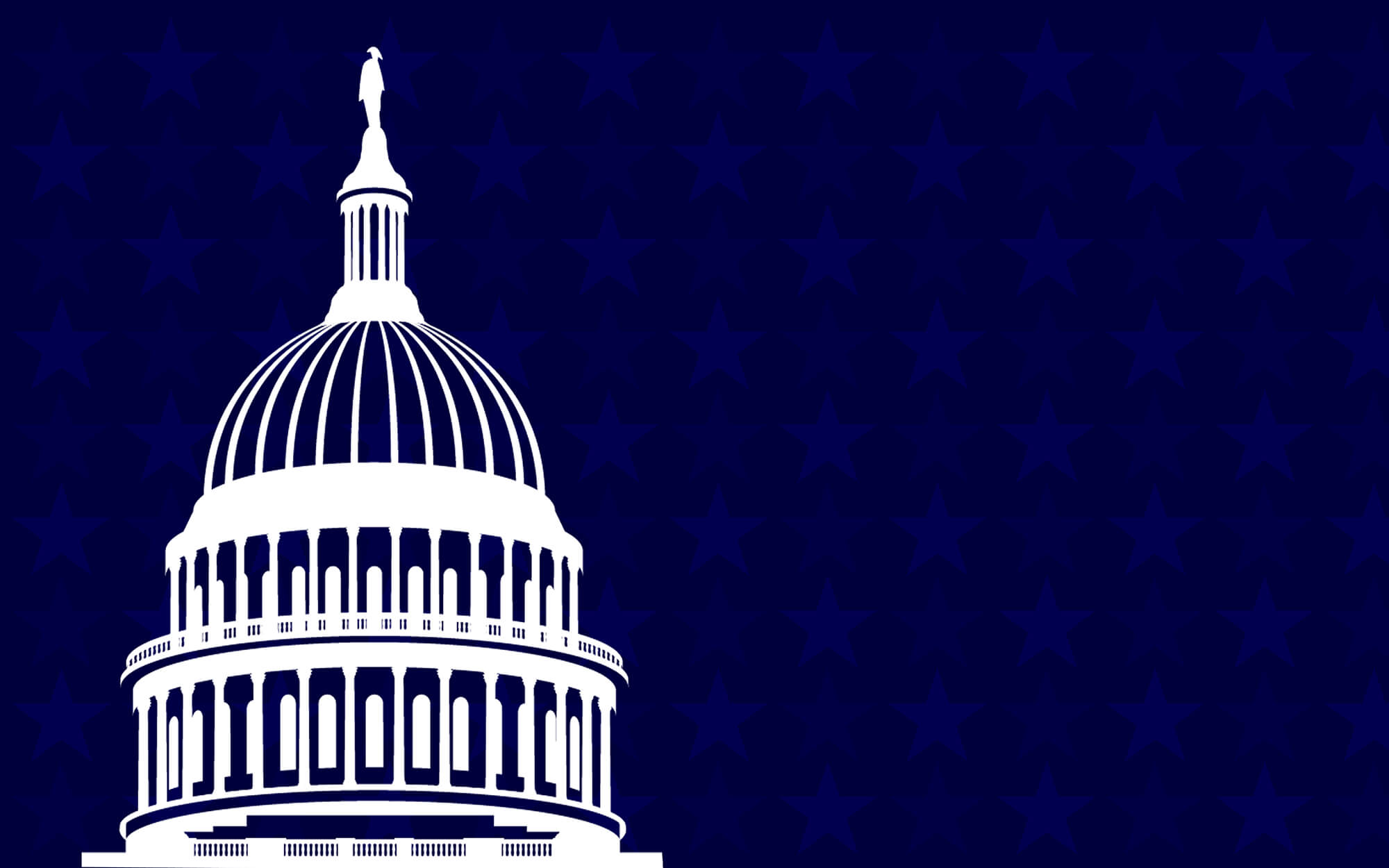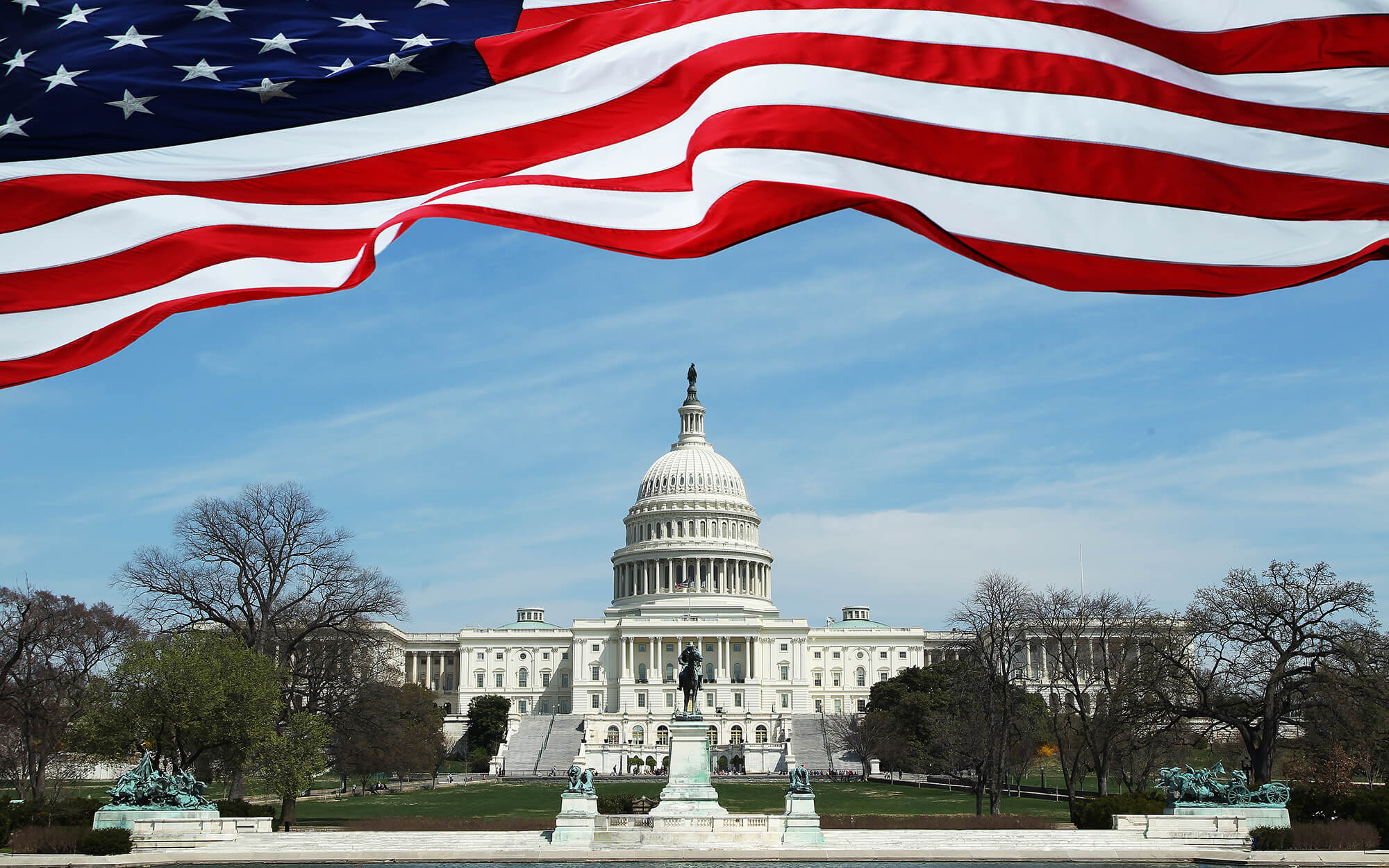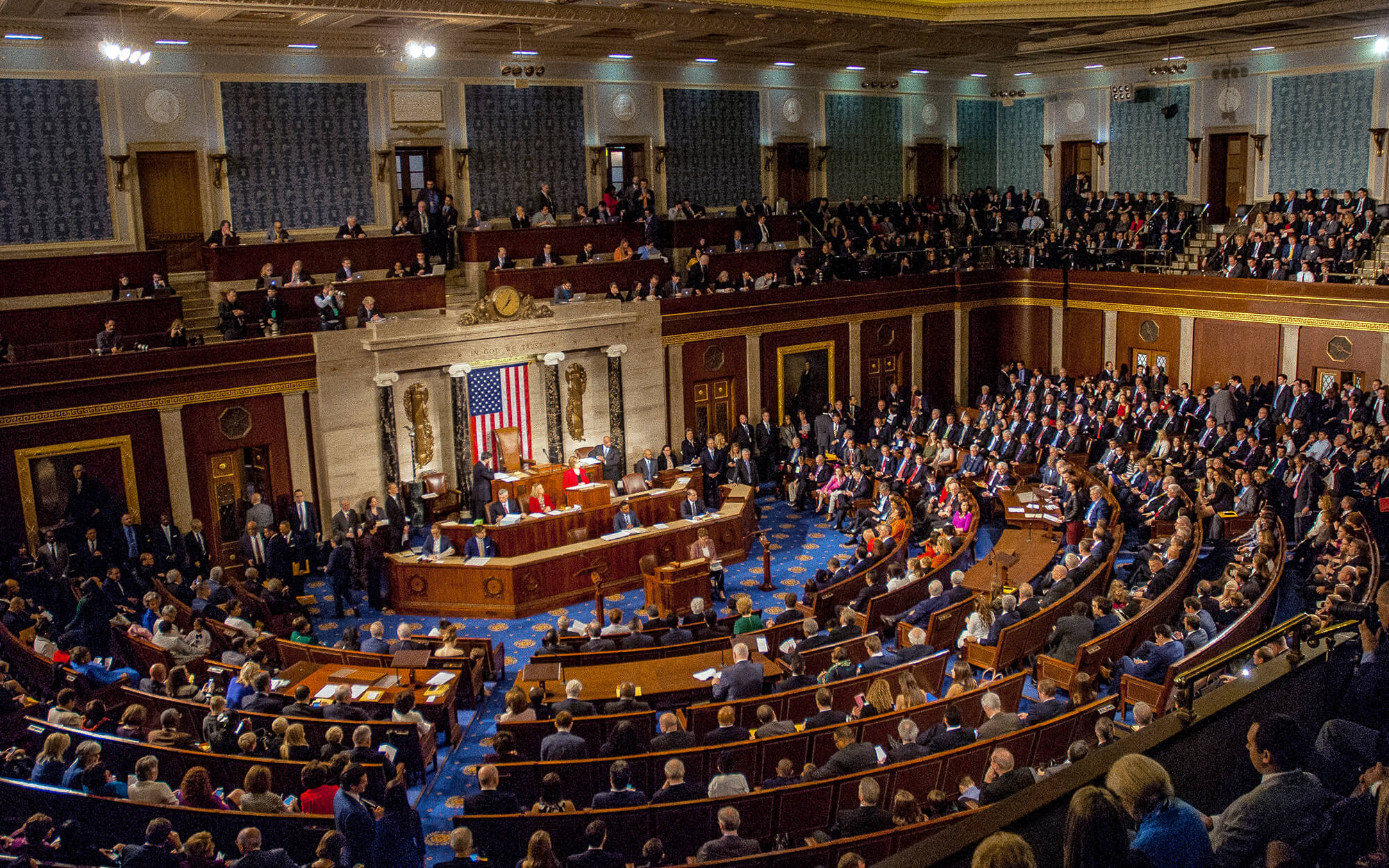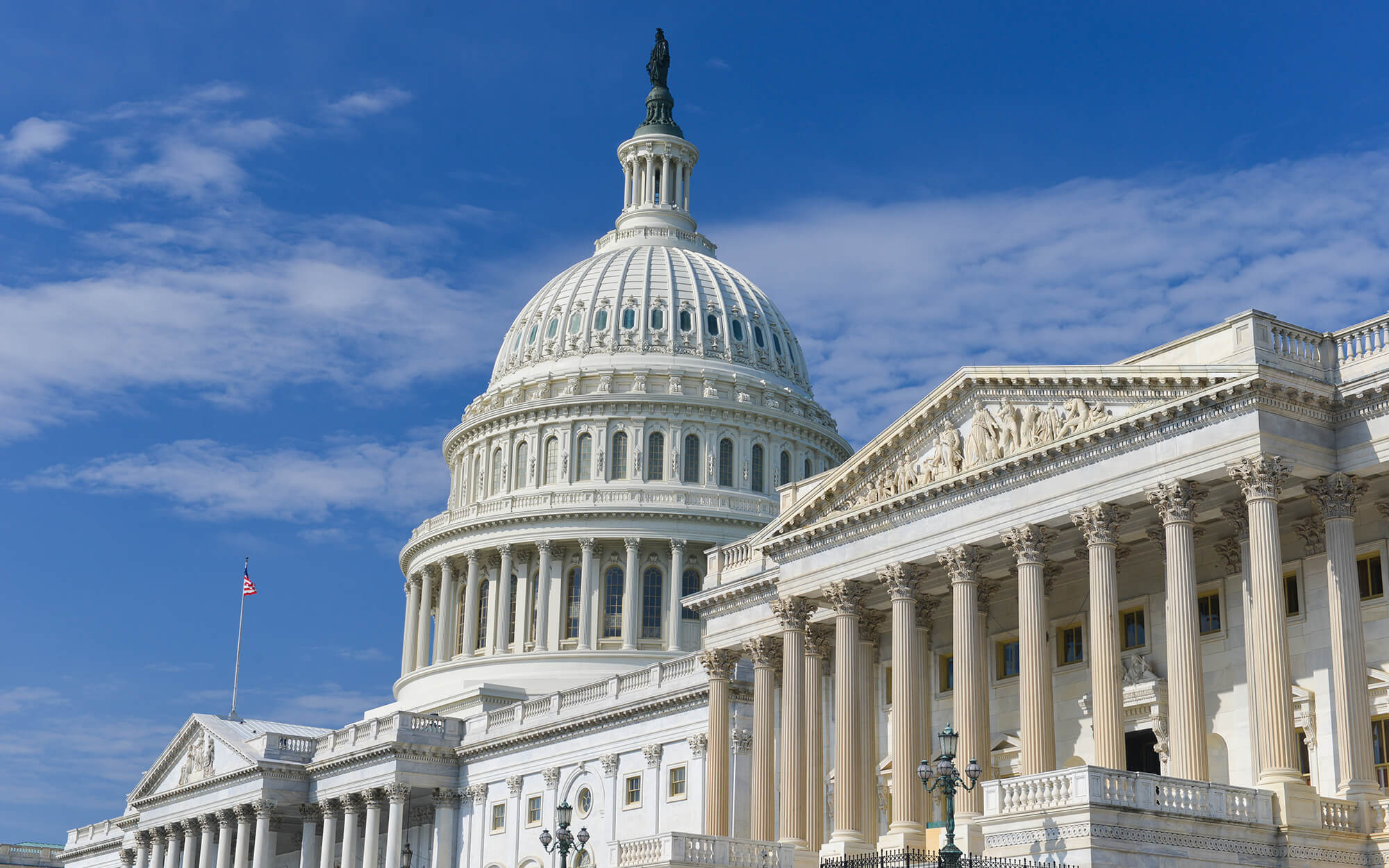When autocomplete results are available use up and down arrows to review and enter to select.
The cyclical nature of party control makes it important to build strong relationships with elected officials and candidates from both sides of the aisle. ICBA supports community bank-friendly candidates in a bipartisan fashion and is well positioned to advance the public policy objectives of community banks.

Below is an update to ICBA’s November 9 post-election memo.
With the victories of Sens. Mark Kelly (D-Ariz.) and Catherine Cortez-Masto (D-Nev.), Democrats now have 50 seats and control of the Senate in the 118th Congress. The December 6 runoff election in Georgia will determine whether the Senate remain 50-50 or 51-49.
Republicans currently lead in the race for control of the House, though final results will not be available for days. ICBA’s analysis of a potential Republican House has not changed since our November 9 memo.
ICBA supports community bank-friendly candidates in a bipartisan fashion and is well positioned to advance the public policy objectives of community banks.

The election results will leave Senate leadership unchanged. Sen. Charles Schumer (D-N.Y.) will continue as majority leader, and Sen. Mitch McConnell (R-Ky.) is expected to remain minority leader.
Leader Schumer’s power will be curbed not only by his party’s narrow margin of control (one or two votes, depending on Georgia) but by likely Republican control of the House. Reconciliation, for example, which was used twice in the 117th Congress to pass major legislation with only Democratic votes, will not be an option in the next Congress because it would be blocked by the House. As a result, only bipartisan legislation will be signed into law. ICBA will continue to defend community banks from threats of harmful legislation and promote bipartisan policy favorable to community banks whenever possible.
Nominations
Perhaps the most significant consequence of Democrats’ continued control is the party’s discretion to approve President Biden’s judicial nominations without Republican votes, including nominations to
fill any vacancies on the Supreme Court. Judicial nominations are not considered by the House. Agency nominations, however, will require 60 votes.
Floor schedule
As majority leader, Sen. Schumer will continue to have unfettered control over floor schedule. Bills passed by a Republican House without bipartisan support, for example, will not be considered by
the Senate.
Banking Committee
Sen. Sherrod Brown (D-OH) is expected to continue as chairman. Sen. Tim Scott (R-SC) is expected to become ranking member, following the retirement of current ranking member Sen. Pat Toomey (R-Pa.). Sen. Scott has
been a leading Senate opponent of SBA direct lending and IRS reporting. The retirements of Sen. Toomey (R-Pa.) as well as Richard Shelby (R-Ala.) have created committee vacancies. Committee member Raphael Warnock (D-Ga.) faces a runoff December 6.
Finance Committee
Sen. Ron Wyden (D-Ore.) will remain as chairman, with Sen. Crapo (ID) likely serving as ranking member. The Finance Committee has jurisdiction over tax policy and the IRS, as well as trade, health policy, Social
Security and Medicare, and other issues.
Agriculture Committee
Current committee leadership is expected to carry over to the 118th Congress, with Sen. Stabenow (D-Mich.) serving as chair and Sen. John Boozman (Ark.) as ranking member. In addition to Farm Bill extension (see above discussion of House Agriculture Committee),
Sens. Boozman and Stabenow have introduced a digital commodities bill, which they are expected to pursue in the 118th Congress. There are similar bills in the House Agriculture Committee. ICBA has strong concerns about this legislation.
New Senators in the 118th Congress
Alaska and Georgia may elect new Senators, pending the results of a ranked choice tabulation in Alaska and a December 6 runoff in Georgia.

The House and Senate will return to Washington this month to address the unfinished business of the 117th Congress in a “lame duck” session. This business includes:
Appropriations. Budget authority under the continuing resolution expires December 16. Congress will attempt to pass an omnibus appropriations bill for fiscal year 2023. ICBA is pressing for the inclusion of the SAFE Banking Act in the omnibus.
Threats. ICBA anticipates attempts to pass adverse legislation during the lame duck. These include Durbin credit card routing mandates, postal banking, SBA Direct lending, harmful digital assets legislation, overdraft, tax increases, and credit union power grab legislation. ICBA is committed to blocking these efforts.
If Republicans ultimately control the Senate, we expect them to try to block any significant lame duck legislation because they will have more leverage in the new Congress.

If Kevin McCarthy ultimately becomes Speaker of the House, he will likely have a margin of control of less than 10 votes and will need to balance the demands of more conservative Freedom Caucus members with those of centrists to pass legislation.
We expect House committees to focus on oversight of Administration ethics, agency actions, and numerous other issues. The House Republicans promoted a “Commitment to America” agenda in advance of the election which emphasizes policies to address inflation, energy, crime and national security.
We also expect action on climate policy, border policy, financial technology and crypto assets, and extension of expiring tax cuts, among other wedge issues. The House will likely pass a series of “message” bills with no expectation that they will be passed in the Senate, regardless of which party ultimately controls that chamber.
Below is a preview of who will potentially chair House committees relevant to community banks in the event of Republican control. In many cases there are two or more candidates for the chairmanship. We expect chairmen to be named before year-end.
Financial Services Committee
Rep. Patrick McHenry (N.C.), the current senior Republican, is the presumptive chairman, and Rep. Maxine Waters (Calf.), the current chairwoman, is expected to serve as ranking member. Rep. Blaine Luetkemeyer (Mo.), who has long championed community bank issues, is expected to become chairman of the Financial Institutions Subcommittee, which has jurisdiction over many community bank-priority issues.
Rep. French Hill (Ark.), also a friend to community banks, is expected to chair the Housing Subcommittee. Losses and retirements in both parties have created a large number of vacancies on the committee. We expect Chairman McHenry to focus on scrutiny of Consumer Financial Protection Bureau rules and initiatives, notably the proposed rule under Section 1071 of the Dodd-Frank Act and the more recent “junk fees” initiative. A recent appeals court finding that the funding of the CFPB is unconstitutional may strengthen the chairman’s hand.
McHenry will also exercise vigorous oversight over the SEC and its climate risk proposals and approach to regulation of digital assets. McHenry has also announced his plans to work on federal data privacy legislation, releasing a discussion draft earlier this year. In addition, we expect the chairman to pursue bipartisan legislation related by financial technology companies and crypto assets, including stablecoins.
Recent draft proposals by McHenry and Waters have raised concerns over their potential impact on community banks and the safety of the financial system. The SAFE Banking Act (cannabis banking), if not passed in the lame duck session, may receive committee consideration. We believe there will be greater opportunities to advance community bank regulatory relief legislation.
Ways and Means Committee
The chairman is likely to be either Rep. Vern Buchanan (Fla.) or Rep. Jason Smith (Mo.), following the retirement of Rep. Kevin Brady (Texas), the current ranking member. Rep. Richard Neal (Mass.), the current chairman, is likely to serve as ranking member. Key issues are likely to be administration oversight and extension of the individual provisions of the Tax Cuts and Jobs Act, including the 20 percent deduction for the income of passthrough entities, such as Subchapter S banks, under Section 199A. These provisions expire at year-end 2025, but there will be an effort to make them permanent in the next Congress.
Agriculture Committee
Rep. Glenn “GT” Thompson (Pa.), the current ranking member, and Rep. David Scott (Ga.), the current chairman, will trade places becoming chairman and ranking member, respectively. The committee will craft an extension of the Farm Bill, which expires October 1, 2023.
ICBA will press for adequate funding for farm safety net programs with no cuts or restrictions on eligibility, higher lending limits on USDA loan programs, and no expansion of Farm Credit System lending authority. The Agriculture Committee will also assert jurisdiction over digital “commodities,” likely expanding the authority of the Commodity Futures Trading Commission (CFTC) to regulate digital assets.
Small Business Committee
Rep. Roger Williams (Texas) is expected to become chairman, and Rep. Nydia Velazquez (N.Y.), the current chairwoman, will likely become ranking member. We expect chairman Williams to be critical of SBA efforts to expand direct lending and to allow financial technology companies to participate in the 7(a) program.

In the 2022 cycle, ICBPAC contributed $1.3 million supporting more than 300 federal candidates and committees who understand the challenges community banks face. Our goal is to support our allies especially when they are in tough races, not to be risk-adverse but to spend resources where they are needed most.
An ongoing goal of ICBPAC is to elect more pro-community bank candidates to Congress. In particular, ICBPAC is proud to be an early supporter of Sen.-elect Katie Britt (Ala.), who won an open seat after the retirement of longtime Senator Richard Shelby (R-Ala.). ICBA also supported eight candidates for open seats in the House, all of whom were elected last night.
We look forward to welcoming all ICBPAC-supported candidates as newly elected members of the 118th Congress.

As we enter the 118th Congress and seek to defend past achievements and pursue new opportunities to promote our mission, community banker involvement and active support in the political process is critical. For more information on how to get involved, visit ICBA’s Advocacy Resource Center: www.icba.org/beheard.
The independent agency heads have fixed terms and are generally not replaceable by an incoming President until their terms end unless they choose to resign prior to the end of the term. However, an acting director is replaceable, as is the CFPB Director and, depending on a forthcoming Supreme Court ruling, the Federal Housing Finance Administration (FHFA) Director.
| Agency and Leadership | Term Ends | Replaceable by President |
|---|---|---|
| FDIC, Jelena McWilliams | June 2023 | No |
| OCC, Brian Brooks | Acting | Yes |
| Federal Reserve, Jerome Powell | February 2022 (as Chair) | No |
| CFPB, Kathy Kraninger | December 2023 | Yes |
| FHFA, Mark Calabria | April 2024 | Possibly depending on SCOTUS decision expected in mid-2021 |
Nov. 09, 2022

Washington, D.C. (Nov. 9, 2022) — Independent Community Bankers of America (ICBA) President and CEO Rebeca Romero Rainey today issued the following statement on the 2022 elections.
“ICBA and the nation’s community bankers congratulate the winners of this week’s 2022 elections and look forward to working with them on the key policy issues affecting community banks and the communities they serve.
“As the nation’s bipartisan voice for nearly 5,000 community banks, ICBA remains dedicated to exclusively representing the nation’s community banking industry. We look forward to continuing our work with policymakers to support community banks, promote local economic growth, and keep credit flowing to consumers and small businesses in local communities nationwide.”
In conjunction with the congressional election results, ICBA today will issue its 2022 Election Analysis with insights on what the results will mean, and what's at stake, for community banks.
About ICBA
The Independent Community Bankers of America® creates and promotes an environment where community banks flourish. ICBA is dedicated exclusively to representing the interests of the community banking industry and its membership through effective advocacy, best-in-class education, and high-quality products and services.
With nearly 50,000 locations nationwide, community banks constitute roughly 99 percent of all banks, employ nearly 700,000 Americans and are the only physical banking presence in one in three U.S. counties. Holding more than $5.8 trillion in assets, over $4.8 trillion in deposits, and more than $3.5 trillion in loans to consumers, small businesses and the agricultural community, community banks channel local deposits into the Main Streets and neighborhoods they serve, spurring job creation, fostering innovation and fueling their customers’ dreams in communities throughout America. For more information, visit ICBA’s website at www.icba.org.
###